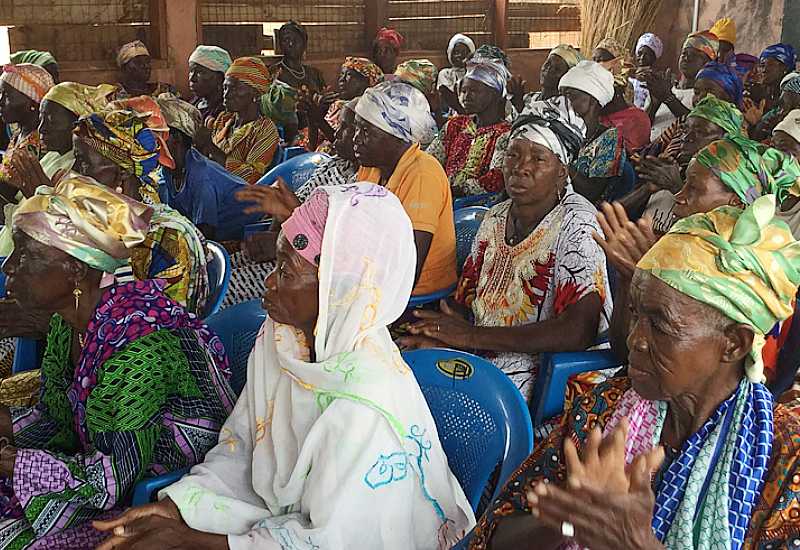A Fifty-year-old inmate of the Gambaga witches camp, Madam Ama Salifu, is appealing for support to build a house where she can live in peace and receive her children when they visit her.
Madam Salifu who has eight children, the last of them being seven years, said because of her predicament she did not want to return to her husband‘s home, for fear of the family rejecting her.
She made the appeal in an exclusive interview with the GNA at Gambaga, during a visit of journalists and media actors to the alleged witches’ camp where the team met the 96 women and four male inmates.
The visit was under the programme, “Engaging Media and Minorities to Act for Peace Building (EMMAP)” and funded by the European Union (EU).
It aims to strengthen the capacity of journalism actors from Ghana, Senegal, and Sierra Leone, to sensitively investigate and report on issues concerning conflict and peacebuilding, addressing minorities and migration issues.
According to Madam Salifu, having lived in the camp for over one year, going home would be the best option, to unite with her family but the accusation levelled against her as a witch had left a stigma on her and she would not be accepted home.
Explaining the ordeal that led to her being accused of witchcraft and seeking refuge at the Gambaga Witches Camp, she said,” My husband’s older brother accused me of witchcraft after I returned home from another village where I attended the funeral of their relative.
“When I got home from the funeral, my husband was summoned to the chief‘s palace, though he was not well, they picked him up on a motorbike to the palace just before bedtime. Later, they sent for me that same night and when I got there, I was told that their grandmother was sick and it was confirmed that I was the one bewitching her,” Madam Salifu said.
“The other experience that angered me was that my younger sister who had just completed JSS visited us, and they wanted to take her for a wife, for a young man in the village and I protested because she had just completed and was awaiting her results, so I did not agree.”
She said was taken somewhere in Togo, and tried by ordeal, given severe beatings until her brothers asked her to accept that she was a witch.
“My brothers who followed up and saw how I was being treated told me to just agree that I am a witch and ask them to allow me to go back to the house to free up the sick old lady and that was how they left me so I had to run into hiding and after some days, then to the Nalerigu Chief who asked that I should be taken to the hospital but I refused and went to the Gambaga Chief’s Palace where I have lived till date”.
At the witch camp, a fowl is usually slaughtered to ascertain whether one is a witch. If the fowl dies on its back, then the accused is free of witchcraft but when it dies lying on its front then the person is said to be a witch.
In the case of Ama, the fowl slaughtered in her name died lying on its front which meant that the gods had refused it because she was a witch, so she lived at the camp for one year and went through the cleansing rites.
She said before the incident she used to hawk vegetables and spices to earn money to support her husband and take care of the family.
“Here in Gambaga, I do jobs for people and cook for my caretaker, the leader of the camp and whatever income I get I send to the children and my mother for their upkeep,” Madam Salifu said.
gna




